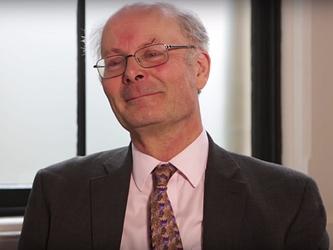A permanent disruption to two party politics?
NatCen’s latest British Social Attitudes survey didn’t lend itself to the screaming headlines of some of its previous versions, proclaiming significant shifts in public opinion. But, what it did show, was that in a period of huge political turmoil following the referendum decision to leave the EU, there were some clear indicators of a change taking place in our political landscape.
So, after seven years of austerity-focused politics, there was a ‘tiring’ of this among the public. Support for tax and spend politics hadn’t gone back to the levels seen in the 90s, but it had nudged back in that direction.
Social liberalisation was evident in several areas – not least same sex relationships – as the religious and older moved closer to the non-religious and younger on social liberalisation.
But this doesn’t spread to all areas and people are certainly tougher, and no more liberal, on crime and defence.
As the last election showed, we are a nation of two party politics once more, but the nature of that divide within society has been disrupted.
As Professor John Curtice of NatCen explained, the principle division now is between social conservatives (who tended to vote Leave) and social liberals (who tended to vote Remain) and “this isn’t what our politics is usually about”. The referendum cut across traditional party lines.
“Characteristics of Leave voters are older, less educated and qualified (so more in working class occupations) and the Conservatives gained most among the working class voters because they are becoming more pro-Leave. Conversely, Labour are making progress with the young, middle class who voted Remain. That’s now the most important segment of Labour support.”
So two party politics continues but age is now the biggest division between Labour and Conservative.
Where age is concerned Curtice saw further disruption in this study when it comes to welfare. Until recently the prevailing opinion has been – especially during this period of high employment – that those under the age of 65 are not worthy of welfare, while those over the age of 65 are worthy.
“It looks as though the latter presumption is now being questioned,” said Curtice. “Pensions are still pretty popular but not as popular as they were, so the debate about pensions will return.”
And he sees public opinion getting about half way back to the mood in the late 80s and early 90s where people aren’t concerned about tax and are more concerned about public services. “My advice to politicians is that is worth listening to.”
“We’re beginning to see the debate in the Conservative party, the extent of getting back to fiscal balance by concentrating solely on the expenditure side rather than the taxation side are beginning to come to an end,” added Curtice.
While the move to social liberalisation is clear in the area of sexual politics, there is no indication of it in terms of immigration. Curtice isn’t surprised by this disconnect.
“Once a society decides that same sex relationships are the norm, that’s it, the change has been made. But immigration is a continuous process; for the past 15 to 20 years the UK has experienced high levels of inward migration and outside of London [some people] have experienced immigration for the first time as a community and they have reacted. So immigration is a constant process of social change,” he said.
The discussion moved on to whether it was actually an issue of social contact and that those who most feared immigration had the least contact with immigrants. But Curtice said it could also be about self-interest. “Younger people are more likely to be able to migrate while for older people migration happens to them but they can’t take advantage of it – it could be about a difference in interest not just about social contact.”

We hope you enjoyed this article.
Research Live is published by MRS.
The Market Research Society (MRS) exists to promote and protect the research sector, showcasing how research delivers impact for businesses and government.
Members of MRS enjoy many benefits including tailoured policy guidance, discounts on training and conferences, and access to member-only content.
For example, there's an archive of winning case studies from over a decade of MRS Awards.
Find out more about the benefits of joining MRS here.













0 Comments